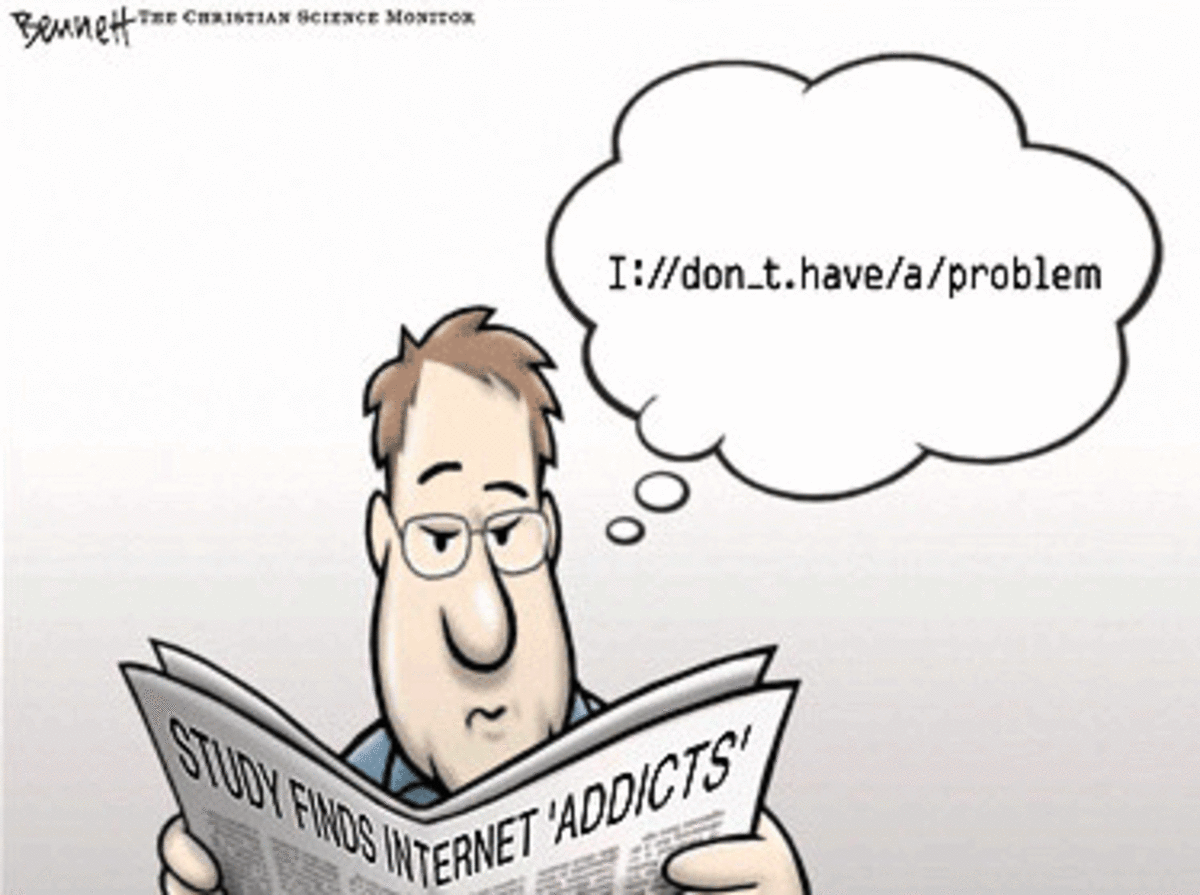Who Are Generation Z and Generation Alpha
The Unknown Demographic
As of today there are 20.8 million children under the age of 4 in the United states plus 2 million in Canada, and 4 million in the UK. What is this generation called?
Generation Alpha is loosely defined as those children born after 2010. However, since these definitions are based on resources, a child born after 2005 could easily be considered alpha since their lives are completely digital and much different to the child born in 1991, before mainstream internet.
For some reason the best articles about this emerging generation are out of Australia, enjoy this article:
Gen Z: digital natives
Peter Hawkins & Lucinda SchmidtJuly 18, 2008Will Generation Z - history's most technologically adept - evolve into tomorrow's realists or idealists?
Pinned to the wall of my daughter's grade 1 classroom is a sheet of butcher's paper, listing questions she and her classmates would like to answer. Will the water run out? How many children travel to school in a sustainable way? Are cities a good idea? The next sheet lists ways they will find out the answers. First on the list: check the internet.
These six- and seven-year-olds are part of the emerging generation Z. Demographers and social researchers have banged on endlessly about Gen Y and their rapid embrace of new technology but Gen Z is the first generation born into a digital world. It's a bit like learning a language in high school compared with being a native speaker (hence an alternative name for gen Z: digital natives).
Advertisement: Story continues belowThis key difference, and others, is now attracting the attention of those who want to know the answer to the question: what kind of adults will Gen Z - this century's first generation - grow up to be?
Gen Zs were born as early as 1991 (making the oldest now 17) or as late as 2001 (so the oldest is seven). "I get frustrated beyond belief with all the age spans," says IBISWorld founder Phil Ruthven, who firmly plumps for a 2001 start point and a 2020 end point, supported by 150 years of charts. Others, including social researcher Mark McCrindle, say gGen Z began around 1995, so the oldest are now hitting 13, and the last Gen Zs will be born next year.
That's a huge discrepancy, based largely on differing start and end points for the preceding generations Y, X and baby boomers. Until the experts sort out their differences, it seems safe to assume that today's babies to seven-year-olds are definitely Gen Z, and kids aged eight to 12 are on the fuzzy line between very young gen Y or the oldest Gen Zs. Certainly, these older pre-teens were toddlers when the internet took over the world, so on that point they can be classified as "digital natives".
McCrindle, founder of McCrindle Research, says that understanding what sort of adults will emerge from today's primary schools requires a close look at their home environment. Families are smaller, parents are older and most mothers are in the workforce. There's less smacking, a lot of structured after-school activities and a bit of a "bubble-wrap" mentality where kids are driven everywhere and playgrounds have rubberised surfaces. All this translates, McCrindle says, into a generation that's "fairly demanding and maybe a bit precocious" with high expectations and plenty of material comforts and toys.
If this sounds scarily like "all about me" generation Y (raised by the baby boomers), it is - but with an important difference. McCrindle says generation X parents are reacting against the baby boomers' overindulgent and free-spirited parenting style. Although Gen Xers have a tendency to be "helicopter parents" - hovering over every aspect of their kids' lives - they are also swinging back to what might be termed traditional values.
McCrindle explains this as an emphasis on old-fashioned notions such as work ethic, etiquette, resilience, fortitude and taking responsibility for oneself.
"This character development is the key thing to watch," he says. "All the research we've done shows gen Y lacks resilience and a work ethic. Generation Z is different." He detects a move away from the past decade's rampant materialism, a stronger emphasis on social justice and a generation of highly educated, technologically savvy, innovative thinkers.
"They will be incredible achievers, leading the nation through issues like the ageing population and climate change," says McCrindle, himself the father of four Gen Zs aged six months to six years. "I'm optimistic." His research predicts that rather than taxpayer Z resenting their entry into the workforce just when ageing peaks, they will soar up income and power ladders faster than their forebears.
IBISWorld's Phil Ruthven is also optimistic about Gen Z. He classifies them as "adaptives" - a "silent" generation that is obedient and socially aware and has scruples. Ruthven's theories are based on US authors William Strauss and Neil Howe, generation gurus who argue that history shows a cycle of four generational types, always in the same order. Based on this pattern, he expects Gen Z to soften and balance the hard-driving gen Ys, with a greater social conscience and notion of fairness - and a tendency to more guilt trips.
"You're probably going to have the most savvy generation of all time," says Ruthven, who agrees with McCrindle that the two key pointers to the adult Gen Zs are their parents and technology, especially the internet. "They are going into primary school already using the internet and PCs, making them the most information-intensive generation of all time."
For a glimpse of the likely effect of internet exposure at a very young age, it's worth hearing Peter Williams talk about his three children, aged 18, 16 and 14. On most definitions, they're Gen Ys, not Zs, but the Williams home has been hooked up to the internet since 1993, at least seven years before most families. "My kids have been on the internet ever since they were born," says Williams, the chief executive of Deloitte Digital, who is also an early buyer of gaming consoles, networking gear and every other type of computer-related technology.
"They take being connected to everything as a given," he explains. "They have been exposed to so much more information, music, movies, cultures and photos. Their capacity to absorb information is breathtaking but they like the short grabs. They become incredibly knowledgeable about their passions because they have access to a mountain of information that we never had."
McCrindle's research notes that this generation values speed over accuracy but Richard Watson, author of trends report What's Next at nowandnext.com, says it's too early to predict how growing up as digital natives will shape them as adults (like Ruthven, he says the oldest Gen Zs are only seven or eight). Certainly, he believes their multi-play computer gaming - requiring collaboration, leadership and fast strategy switches - will have an influence. Co-operating with others and problem-solving will be second nature to Z, although McCrindle adds that cotton-wool parenting may make them risk-averse.
Surprisingly, Watson is the only expert interviewed who mentions the environment. The deluge of media coverage and school projects on climate change will make gen Z far more environmentally aware, he believes. (At my daughters' primary school, the way each child travels to school is recorded.) "I have a five-year-old son on permanent Earth Hour watch," says Watson, laughing. "He keeps switching off the freezer and the computer and all the lights. It's driving me around the bend."
KPMG demographer Bernard Salt argues that Gen Z started way back in 1991 and finished in 2006. That makes his oldest Zers 17. He differs from other researchers in believing the moniker won't stick because Americans says zee and everyone else says zed. "I'm pushing for 'millennium generation'," he says, noting that other suggestions include the "bubble-wrap generation" and generation T (for toys).
He agrees there are similarities between Y and Z, such as smaller family sizes and more attention from parents (making them comfortable with authority). "It's tempting to say Gen Z will be just like Gen Y, only more so," he muses. "But I don't think so. There's a fork in the road. The parents of Gen Y, the baby boomers, were guilty about Mum working, and therefore very indulgent. The parents of Gen Z - Gen X - have let go of the angst. It's tougher love - Mean Mummy instead of Yummy Mummy. They have a more realistic view of the world."
Anyway, Salt says, Gen-X parents had to pay off university debts and then faced exorbitant property prices, so there's not as much disposable income sloshing around. Gen Z may also experience a recession, after 18 years of economic prosperity, and perhaps see a parent lose their job.
"Gen Y are wanters, demanders, idealists," says Salt. "Gen Z will be realists and more balanced than Y. They might come along in the 2020s and clean up the mess left by Gen Y, who couldn't handle the downturn. They could be the doers, the fixers."
Swimming against the tide is Hugh Mackay, one of Australia's foremost social researchers. "Everyone puts the boot into Gen Y," says Mackay, who defines them as today's 15- to 30-year-olds. "They're a wonderful generation with a lot to teach us."
Gen Z he's less confident about, saying their overzealous helicopter parents, obsessed with the "art of parenting", will create a burden for their offspring. "These kids are overindulged, with a towering self-esteem - as opposed to self-respect - which won't be healthy," he warns. "We are facing the most rebellious and obnoxious group of teenagers ever."
http://www.essentialbaby.com.au/kids/kids-education-and-play/gen-z-digital-natives-20080716-3g5p.html?page=-1







